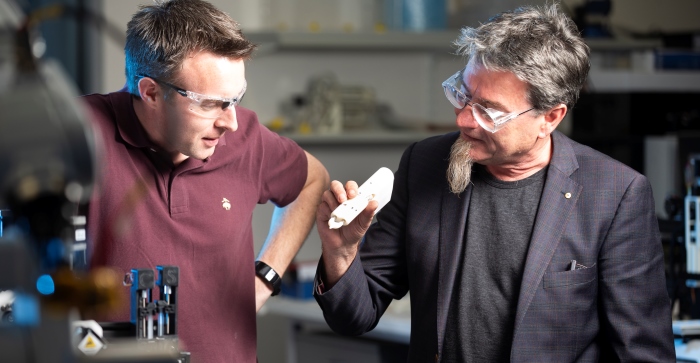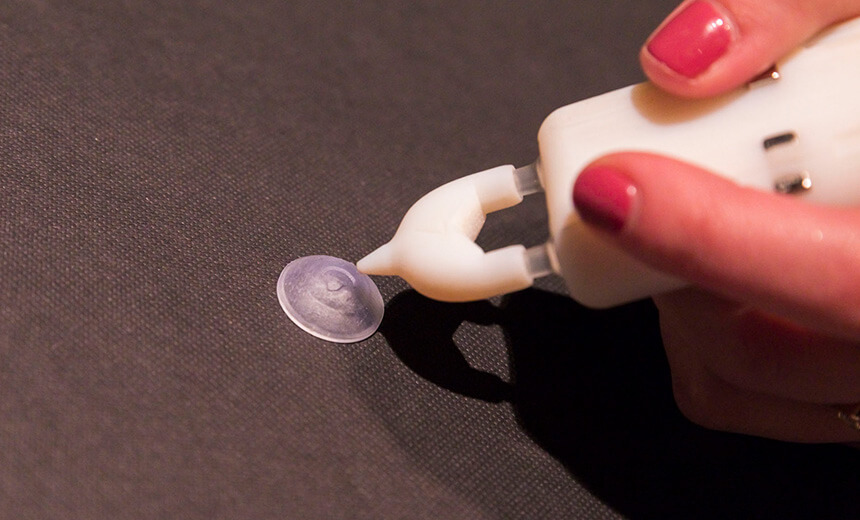Corneal ulcers are extremely painful. They expose the nerve in the eye where they cause tearing, squinting, and – in the worst case – loss of vision. It is a common problem around the world. In Australia alone, this affects around 55,000 patients every year.
However, there is now a 3D printing invention which may help thousands of patients every year. It’s ingeniously called iFix and was developed by a team from the University of Sydney Save Sight Institute.
iFix is a corneal pen which uses bio-ink to treat eye wounds. The ink released by the 3D printing pen helps corneal cells regenerate and reduces infection and scarring.
The University of Sydney and the South Eastern Sydney Local Health District jointly own the intellectual property for the technology. Now, this BioPen is getting closer to being commercially available thanks to an NSW Medical Devices Fund award of $1.1 million.
NSW Minister for Health and Minister for Medical Research Brad Hazzard announced: “We are committed to promoting local innovation to create a thriving medtech industry in NSW as well as improving patient outcomes across the state and beyond. Fund recipient organizations have now raised more than $456 million in funding and treated more than 180,000 patients.”

Saving Eyesight with the iFix 3D Printing Pen
As well as receiving the money from the NSW Medical Devices Fund, the team also received $45,000 in pre-seed funding from the inaugural Sydney Research innovation challenge, The Big Idea.
Professor Gerard Sutton, who’s leading the team, explains: “Winning the Big Idea last year gave us two things. It gave us credibility when we were applying for other grants and the self-belief that we had a great idea worth developing. The iFix pen is one part of an overall corneal bioengineering project and, with the support from The Big Idea and the Medical Devices Fund, we are also hoping that within the next five to 10 years, we will be able to develop a 3D bioengineered cornea.”
The team should certainly be feeling “self-belief” as they’ve proven that the pen can reduce recovery time for a patient but also accelerate feeling and minimize pain.
Currently, the iFix pen is being tested on animals. However, it won’t be long before the pen is taken to human trials next year. If everything goes to plan, the iFix 3D printing pen could change lives throughout the world.
Source: The University of Sydney

License: The text of "iFix 3D Printing BioPen Receives $1.1 Million in Funding" by All3DP is licensed under a Creative Commons Attribution 4.0 International License.